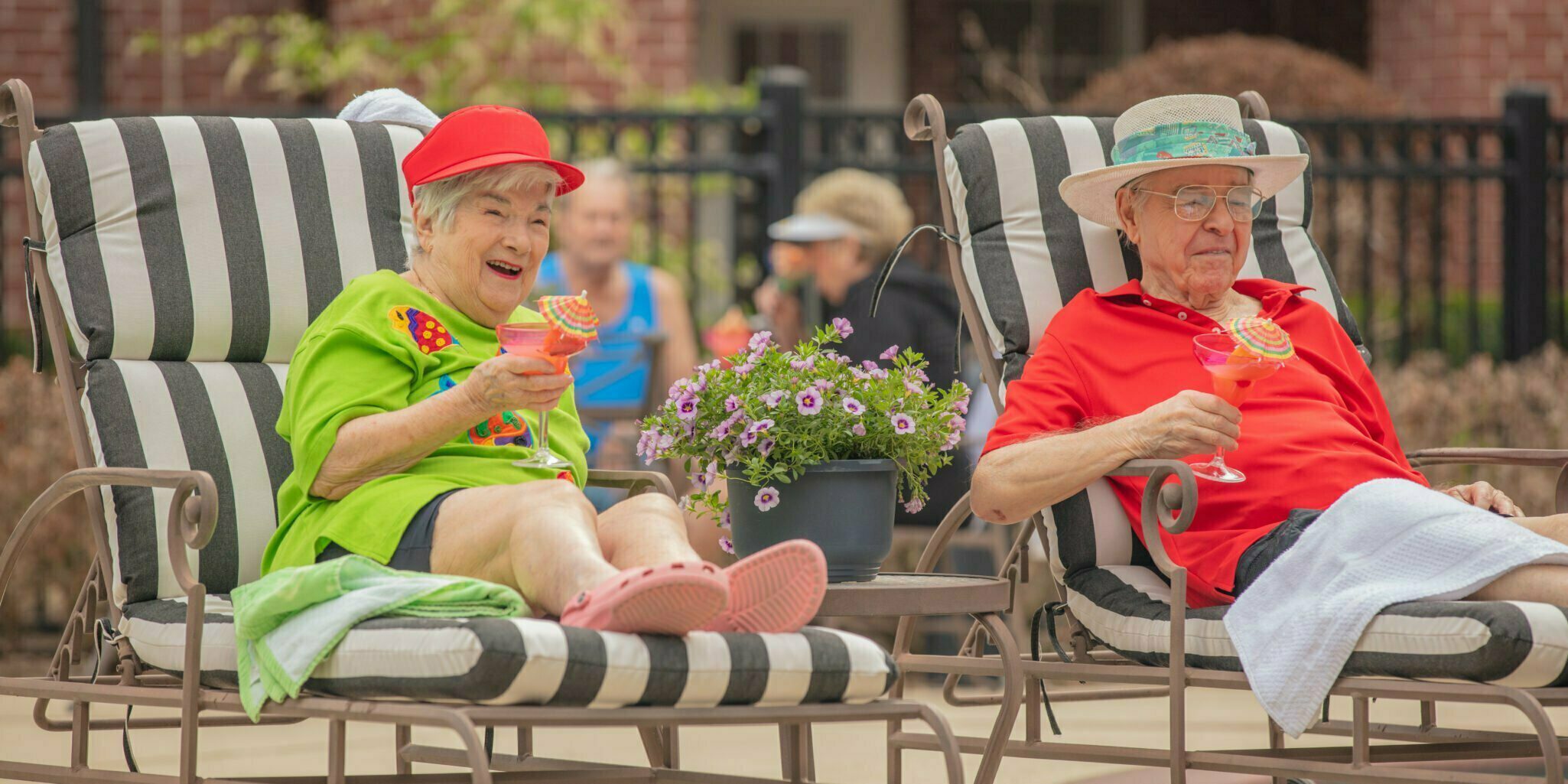
Best Activities for Seniors with Dementia
For people living with Alzheimer’s disease or other forms of dementia, the right activities are crucial. Finding activities for seniors with dementia can offer benefits such as cognitive stimulation, the opportunity to connect with others, comfort and relaxation, and more. But perhaps the main obstacles to pursuing effective dementia activities are the helplessness, lack of identity and boredom that typically accompany a dementia diagnosis. The condition is progressive, and many seniors with dementia simply give up doing what they used to enjoy, losing their sense of purpose. But that only leads to sadness, depression and loneliness. Finding meaningful activities for your loved one with dementia is key to coping with this challenging disease, and worthwhile for both of you.
Moving Past Feelings of Helplessness
Though dementia can, in fact, limit certain abilities, it’s important to avoid something called “learned helplessness.” This happens when expectations about the capabilities of an afflicted individual become so low that they lead to an actual decline in their true abilities. For example, if you do everything for your loved one, they’ll eventually forget how or be unwilling to do these things themselves. This growing feeling of helplessness is at odds with the sense of purpose you’re trying to instill. The key is finding the balance between offering help when it’s needed, while encouraging independence and self-sufficiency whenever possible.
Rediscovering Purpose
Research has shown that having a sense of purpose is therapeutic for seniors living with dementia. In what is now considered a landmark study, Rush University Medical Center in Chicago conducted a long-term study of more than 1,400 senior citizens over a 15-year period. Those who rated high on their “purpose of life” scale had a 30% lower rate of cognitive decline than those who rated lower on the scale. Sense of purpose and meaning in life are also increased through role continuation, reminiscence, and the joy of teaching children. These relationships, established between children and individuals with dementia, can decrease anxiety and help preserve physical health.
Dementia Activities with a Beneficial Outcome
Many seniors with dementia struggle with feelings that they’ve become a burden to the person caring for them. They want to help, but don’t know what to do. Even a simple chore they can manage easily will give them something to do and provide the beginnings of a new sense of purpose. These can be simple chores like folding laundry or sorting through a drawer to help organize the items inside. Even simple tasks like these can help people with Alzheimer’s disease feel useful.
Finding purpose might be as simple as drawing upon what your loved one has always enjoyed. Did they love animals? Sometimes people enjoy cutting out magazine photos and making a collage or simply pinning them to a bulletin board. It may take some thought and experimentation to create activities that are neither too difficult nor so simple that they may offend your loved one.
A step up from this type of dementia activity involves looking back over the person’s life and helping them develop their biography or timeline of events in a scrapbook. This can be very enjoyable for you and your loved one. Seniors with dementia are often able to remember events from decades ago more easily than what happened last week. This dementia activity provides a range of tasks to do, such as looking through old photos and finding other mementos like ticket stubs or theater programs that are appropriate for a scrapbook. And as the scrapbook develops, the pleasure and satisfaction from sharing it is quite rewarding.
The best activities for seniors with dementia that yield a tangible outcome and purpose are in making things together — a cushion cover, a birdhouse, threading beads for a necklace. The sense of engagement and satisfaction can be very high with this type of dementia activity. Here are some additional guidelines for finding the right activities for seniors with dementia:
Focus on activities that promote relaxation. Dementia can be a source of great anxiety and tension. Some seniors with dementia won’t be able to take part in certain physical activities, but this doesn’t mean they’ve lost their capacity for enjoyment. Relaxation through music, sunlight, warmth, smell and touch is always beneficial.
Sometimes the activity is more important than the outcome. Worry less about how an activity should be done or what the end product is supposed to be than how engaged your loved one is. People in the middle and late stages of dementia aren’t always capable of understanding the goal of an activity. Try to help them enjoy the process by being in the moment.
Know your loved one’s daily rhythms. People move through the disease in their own way at their own pace. Be alert to signs that an activity may be causing frustration. Make some modifications or try something else if necessary. Is there a better time of day to try this particular activity? Are noise and distractions causing sensory overload?
The goal is engagement. Whether playing a game or performing exercises together, the important thing is that the person with dementia stays connected and engaged in the activity. Sensory stimulation in this way helps preserve basic skills — such as being able to button a shirt — and lets them function as independently as possible for as long as possible.
Arrange for a visit with children or a pet. Visiting with children, or a dog or cat can often touch seniors with dementia deeply.
Embrace artistic pursuits, like painting, writing, or music. Visual arts, assembling a collage or creating a clay ornament, writing, and music are great ways to encourage creativity, improve behavioral issues, and provide an outlet for self-expression. The arts can help create a mood, stimulate the imagination and offer genuine enjoyment.
Purposeful Activities are Part of The Buckingham Experience
Though dementia is a progressive condition, your loved one will likely have both good and bad days. Some will be filled with energy for lots of activity, and at other times they may struggle to understand certain activities and prefer to do something less taxing. Be flexible and take each day as it comes. The memory care team at The Buckingham of Houston can introduce activities to help your loved one with dementia stay fit, connected and inspired. For information on our memory care services, please call us at (713) 979-3090 to learn more.

